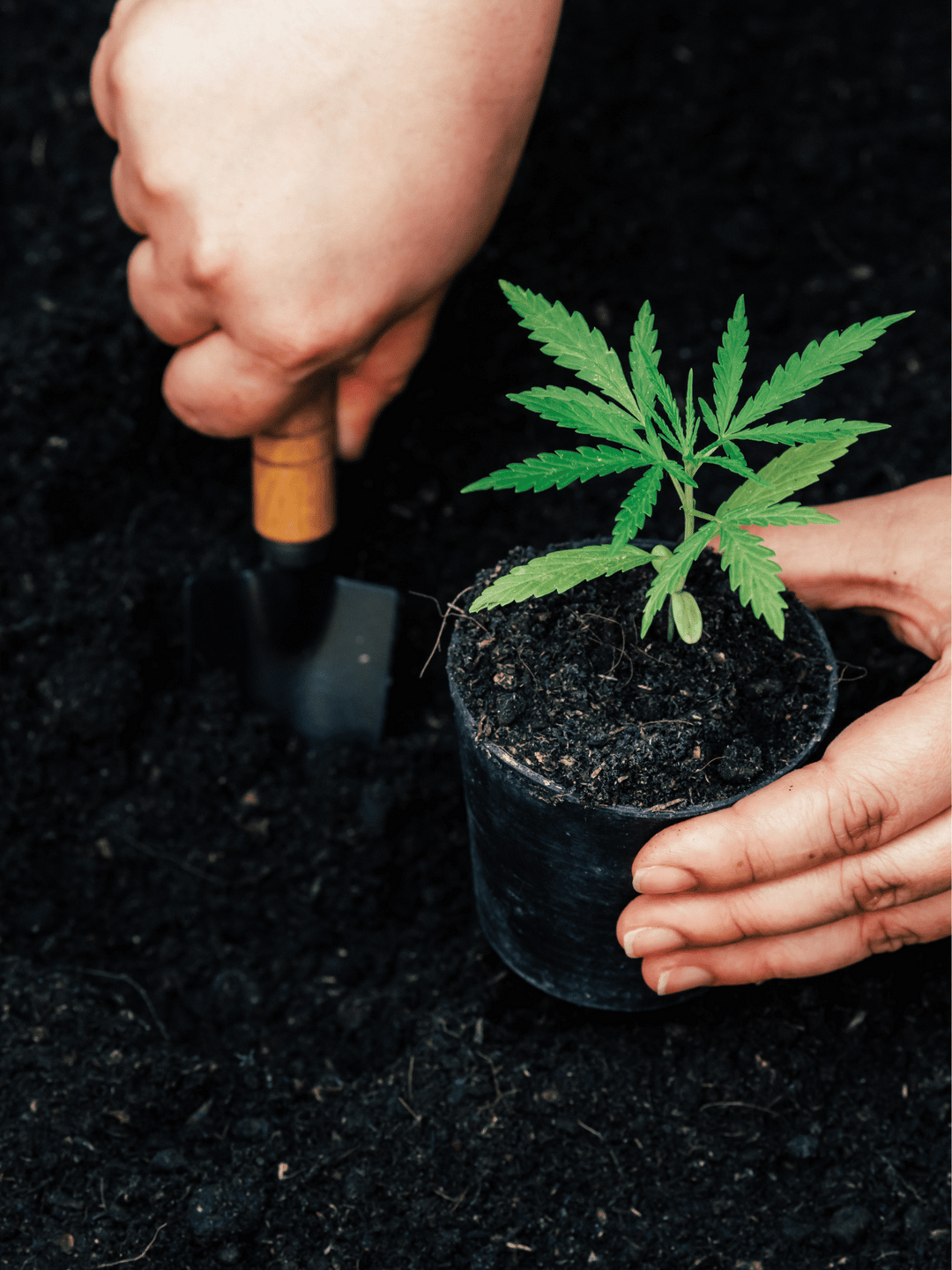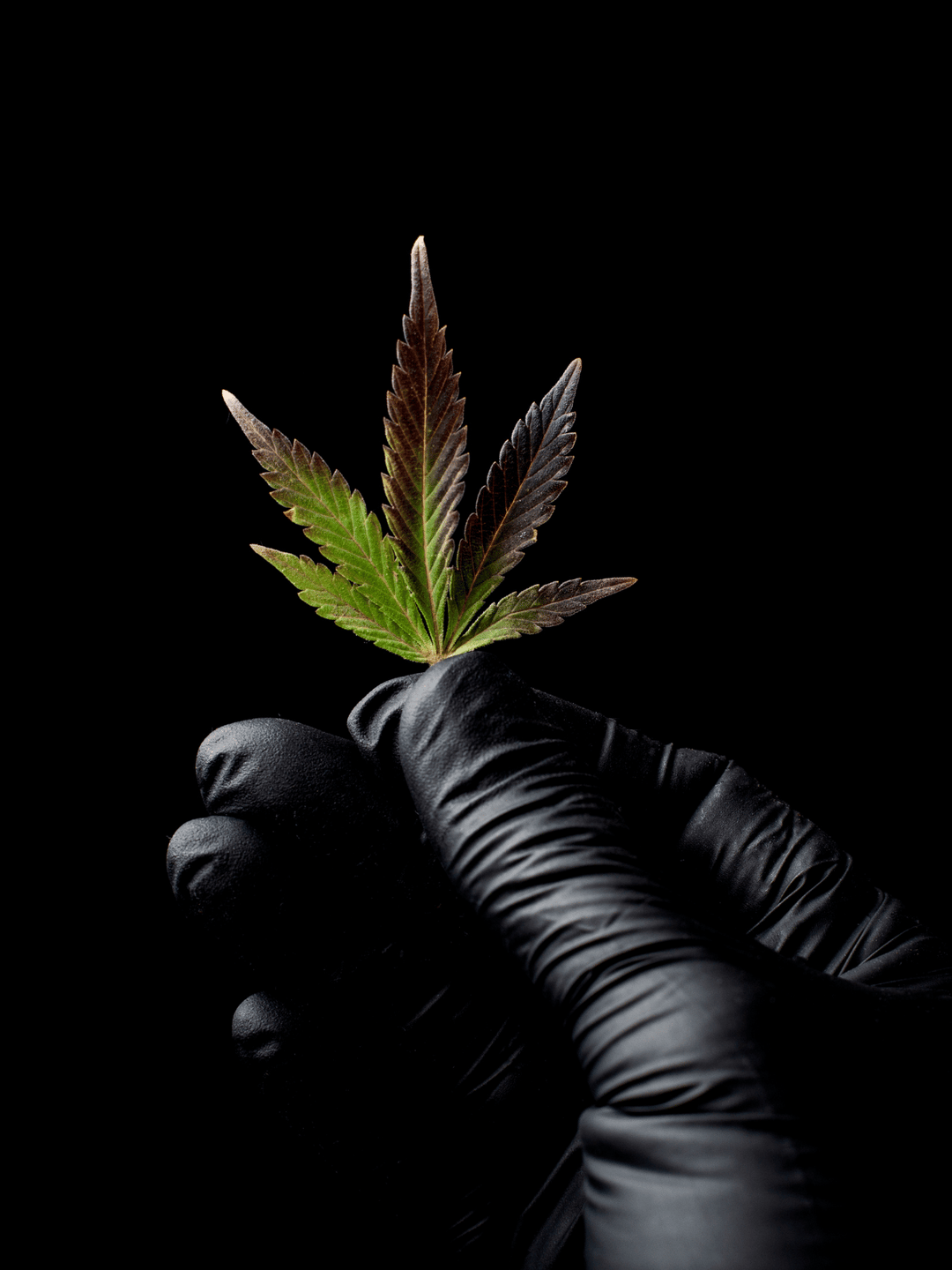What is cannabis fertilizer?
Cannabis fertilizer is a special nutrient mixture that promotes the growth and health of cannabis plants. It contains important nutrients such as nitrogen (N), phosphorus (P) and potassium (K) as well as trace elements. There are organic fertilizers made from natural materials, mineral fertilizers in liquid or solid form and special fertilizers for specific cultivation methods such as hydroponics.
The correct dosage is crucial to avoid over- or under-fertilization. In addition, the pH value of the soil or nutrient solution must be kept in the optimum range so that the plants can absorb the nutrients effectively. By using cannabis fertilizer, yields can be increased and the plants made more resistant to disease.
What is organic cannabis fertilizer?
Organic cannabis fertilizer is made from natural materials and promotes the growth and health of cannabis plants in an environmentally friendly way. It contains important nutrients such as nitrogen (N), phosphorus (P) and potassium (K) as well as trace elements derived from organic sources.
Commonly used organic fertilizers include:
- Compost: A mixture of decomposed plant and food waste.
- Worm humus: The nutrient-rich droppings of earthworms.
- Guano: Bat or bird droppings, which are particularly rich in nutrients.
Organic fertilizers improve the soil structure and promote the microbiology of the soil, which leads to healthier plants. The correct dosage and the pH value of the soil are crucial to ensure that the nutrients can be absorbed effectively. By using organic cannabis fertilizer, plants become more resistant to diseases and pests.
Cannabis fertilizer: outdoor vs. indoor
Outdoor cannabis fertilizer
- Slow release fertilizer: Releases nutrients over a longer period of time.
- Organic fertilizer: Improves soil health, e.g. compost and worm humus.
- Weather resistant: Must withstand rain and weather.
Indoor cannabis fertilizer
- Fast-acting fertilizer: Liquid fertilizer for quick absorption.
- Hydroponic fertilizer: For cultivation without soil, perfectly balanced nutrients.
- pH-controlled fertilizer: Maintains the optimum pH value in the cultivation system.
Outdoor fertilizers are suitable for long-term nutrient release and robust conditions, while indoor fertilizers offer fast nutrient uptake and precise control.

Organic fertilizer for cannabis
Organic fertilizers for cannabis are natural fertilizers that promote the growth and health of cannabis plants in an environmentally friendly way. They contain important nutrients such as nitrogen (N), phosphorus (P) and potassium (K) as well as trace elements from organic sources. Commonly used organic fertilizers include compost, which consists of decomposed organic material, worm humus, the nutrient-rich droppings of earthworms, and guano, a nitrogen- and phosphorus-rich bat or bird dung.
Biofertilizers improve soil structure and promote soil microbiology, resulting in healthier plants. They are environmentally friendly as they contain no synthetic chemicals and support sustainable cultivation methods. The correct dosage and soil pH are crucial to ensure that the plants can absorb the nutrients effectively. Organic fertilizers release their nutrients slowly, resulting in a continuous supply to the plants and making them more resistant to diseases and pests.

Cannabis flower fertilizer
Cannabis Flowering Fertilizer is specially developed to optimally nourish the plants during the flowering phase. During this phase, cannabis plants require particularly high amounts of phosphorus (P) and potassium (K) to promote flower formation and resin production. Flowering fertilizer improves flower development by supplying the plants with the necessary nutrients. Phosphorus is important for flower and seed formation, while potassium strengthens the overall health and disease resistance of plants.
The correct dosage and pH of the nutrient solution are crucial to avoid over-fertilization and ensure optimal nutrient uptake. There are different types of flowering fertilizers, including organic fertilizers such as guano or worm humus, mineral fertilizers with synthetic nutrients and liquid fertilizers that are easy to apply and fast-acting.
The use of flowering fertilizers can significantly improve the yield and quality of the harvest by optimally supplying the plants with nutrients during the critical flowering phase.
NPK fertilizer for cannabis
NPK fertilizer for cannabis contains the essential nutrients nitrogen (N), phosphorus (P) and potassium (K), which are crucial for the growth and health of plants. Nitrogen promotes vegetative growth and leaf formation, phosphorus is important for root development and flower formation, and potassium strengthens overall plant vigor and disease resistance.
The correct dosage of NPK fertilizer and the optimum pH value of the soil are crucial to ensure effective nutrient uptake. NPK fertilizer can be used in both indoor and outdoor cultivation and improves the yield and quality of the harvest through targeted nutrient supply.
FAQs
NPK fertilizer contains the essential nutrients nitrogen, phosphorus and potassium, which are necessary for various growth phases of the cannabis plant. Nitrogen promotes leaf growth, phosphorus promotes root and flower formation and potassium promotes general plant strength.
The choice of the right fertilizer depends on the cultivation method (indoor or outdoor) and the growth phase. Flowering fertilizer is for the flowering phase, while NPK fertilizer ensures a balanced supply of nutrients. Organic fertilizers improve soil health, while mineral fertilizers can provide faster results.
Organic fertilizers consist of natural materials such as compost and worm humus and improve soil health. Mineral fertilizers are synthetically produced and provide a rapid release of nutrients.
The frequency of fertilization depends on the growth phase and the specific fertilizer. It is important to follow the manufacturer's instructions and to check the plants regularly for signs of over- or under-fertilization.
It is better to use different fertilizers for the different growth phases. Growth fertilizers are rich in nitrogen, while flowering fertilizers contain more phosphorus and potassium to support flower formation.
If over-fertilized, the leaves may look burnt or turn yellow. Rinse the soil thoroughly with clean water to remove excess nutrients and reduce the amount of fertilizer the next time you apply it.











